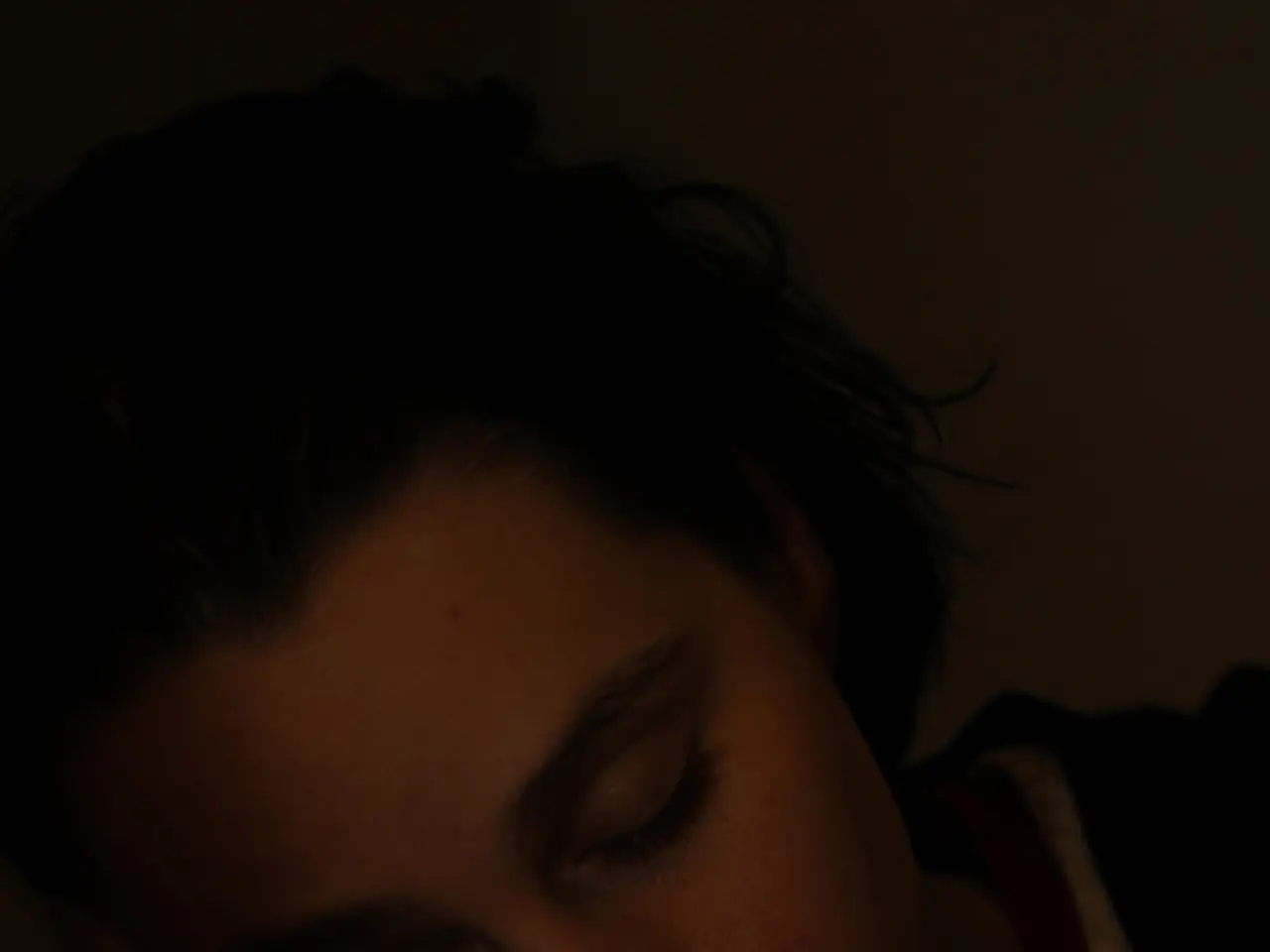Sleeping difficulty at the onset: Understanding causes, remedies, and additional information
Sleep onset insomnia, a common sleep disorder, is characterized by significant delays in falling asleep at the beginning of the night. This condition can have a profound impact on an individual's overall well-being and physical and mental health.
Common Causes
Psychological factors, such as stress and anxiety, play a significant role in sleep onset insomnia. Increased cortisol levels due to psychological stress disrupt normal sleep initiation [3][5]. Other common causes include medical conditions, lifestyle factors, and certain medications.
Chronic pain, psychiatric disorders (e.g., depression, anxiety), hormone imbalances, and sleep disorders (e.g., restless legs syndrome, sleep apnea) can interfere with sleep onset [2][4][5]. Irregular sleep schedules, excessive caffeine or alcohol, and poor sleep hygiene compromise sleep onset [2][5]. Some drugs negatively affect sleep quality, leading to difficulty falling asleep [2][5]. Age-related changes, such as altered circadian rhythms and more medical conditions, contribute to insomnia in older adults [4].
Treatment Options
Cognitive Behavioral Therapy for Insomnia (CBT-I) is the first-line treatment that targets thoughts and behaviors disrupting sleep, and has been proven effective especially for sleep onset difficulties [5]. Short-term use of hypnotics like benzodiazepines or zolpidem can assist by enhancing GABA activity, but long-term use is discouraged due to dependency and side effects [3][5].
Establishing regular sleep schedules, relaxing routines before bed, reducing caffeine/alcohol intake, and optimizing the sleeping environment are essential lifestyle and sleep hygiene improvements [2][5]. Treating contributing medical or psychiatric disorders improves insomnia symptoms [4][5]. Some cases may benefit from interventions that reduce hyperarousal, such as stress management techniques or anti-inflammatory approaches if relevant [1][3].
Symptoms and Prevalence
People with insomnia may experience symptoms such as waking up too early, feeling excessively sleepy or tired, irritability, anxiety, depression, difficulty concentrating, not feeling refreshed upon waking, and sleep quality issues. Insomnia is a common sleep problem affecting approximately 30% of the adult population in the United States [6].
Insomnia can sometimes run in families, suggesting a genetic component [6]. If someone has trouble falling or staying asleep, feels tired during the day, and finds that insomnia symptoms interfere with their daily life, they should consider speaking with a medical professional.
Genetics and Insomnia
Genetic research has identified genes responsible for several potential molecular mechanisms in the development of insomnia, but further studies into genetics and insomnia are necessary [6]. Sleep disorders, such as insomnia, can affect other areas of life, including work, school, driving, social functioning, and concentration.
In conclusion, sleep onset insomnia commonly arises from stress-induced hyperarousal combined with lifestyle and medical factors. Effective management hinges on behavioral therapy, lifestyle adjustments, possibly short-term pharmacotherapy, and addressing any underlying causes [2][3][5].
Sleep disorders, such as sleep onset insomnia and restless legs syndrome, can interfere with normal sleep initiation due to genetic factors [6]. Enhancing mental health by reducing stress and anxiety levels, which often spell trouble for sleep onset [3][5], can contribute to overall health-and-wellness [2][5]. Performing regular sleep hygiene practices, like establishing a relaxing bedtime routine, can aid in overcoming sleep disorders [2][5], providing a pathway for improved sleep and better mental health.




